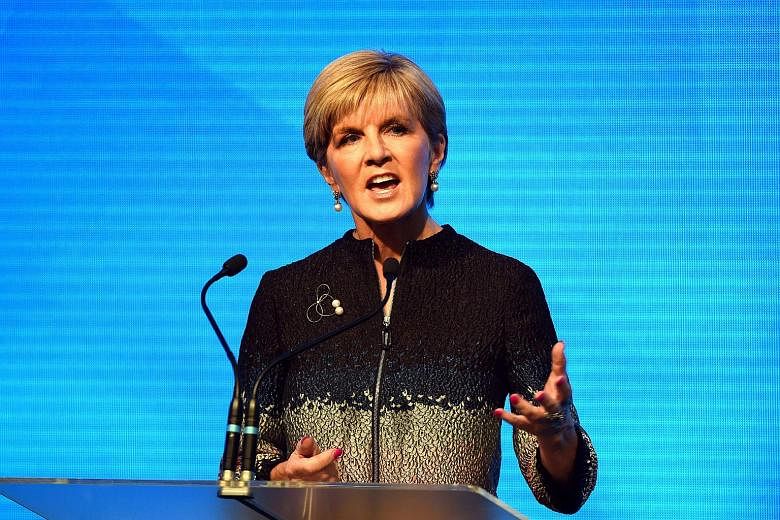SYDNEY (AFP) - Australia will argue that an arbitration body due to meet in The Hague later on Monday (Aug 29) has no jurisdiction to settle a dispute with Timor Leste over their maritime boundary, officials said.
Foreign Minister Julie Bishop confirmed Australia would take part in the meeting of the conciliation commission, which is part of the Permanent Court of Arbitration. Timor Leste had demanded that the meeting be held, under the terms of the UN's Convention on the Law of the Sea.
"We will argue that the commission does not have jurisdiction to conduct hearings on maritime boundaries," Ms Bishop said in a joint statement with Attorney-General George Brandis.
Australia would abide by the commission's finding "as to whether it has jurisdiction to hear matters on maritime boundaries".
But the statement added that Australia did not consider its final report would be binding.
"If the commission ultimately finds that it does have jurisdiction to hear matters on maritime boundaries, then its final report on that matter is not binding," the ministers said.
Timor Leste, a tiny nation whose economy depends heavily on oil and gas exports, has been demanding that Australia renegotiate the border that cuts through lucrative oil and gas fields in the Timor Sea.
Australia says it is committed to upholding existing treaty obligations with Timor Leste, which it says have benefited both countries.
Canberra says its current treaties with the tiny state are legally binding and in full accordance with international law.
But Timor Leste has accused Australia of spying to gain a commercial advantage during 2004 negotiations over the Timor Sea gas treaty, which covers a vast gasfield between the two nations worth billions of dollars. It wants the pact torn up.
Australia allegedly used an aid programme as cover to bug Timor Leste's Cabinet offices so it could listen to discussions about the treaty.
The agreement was signed between Canberra and Dili in 2006, four years after Timor Leste - with Australian help - won independence following years of brutal Indonesian occupation.
Timor Leste officially dropped its spying case against Australia before the UN's International Court of Justice in June 2015, after Canberra returned sensitive documents.
But the parallel case before the Permanent Court of Arbitration, the oldest global institution for the settlement of international disputes, continues.

